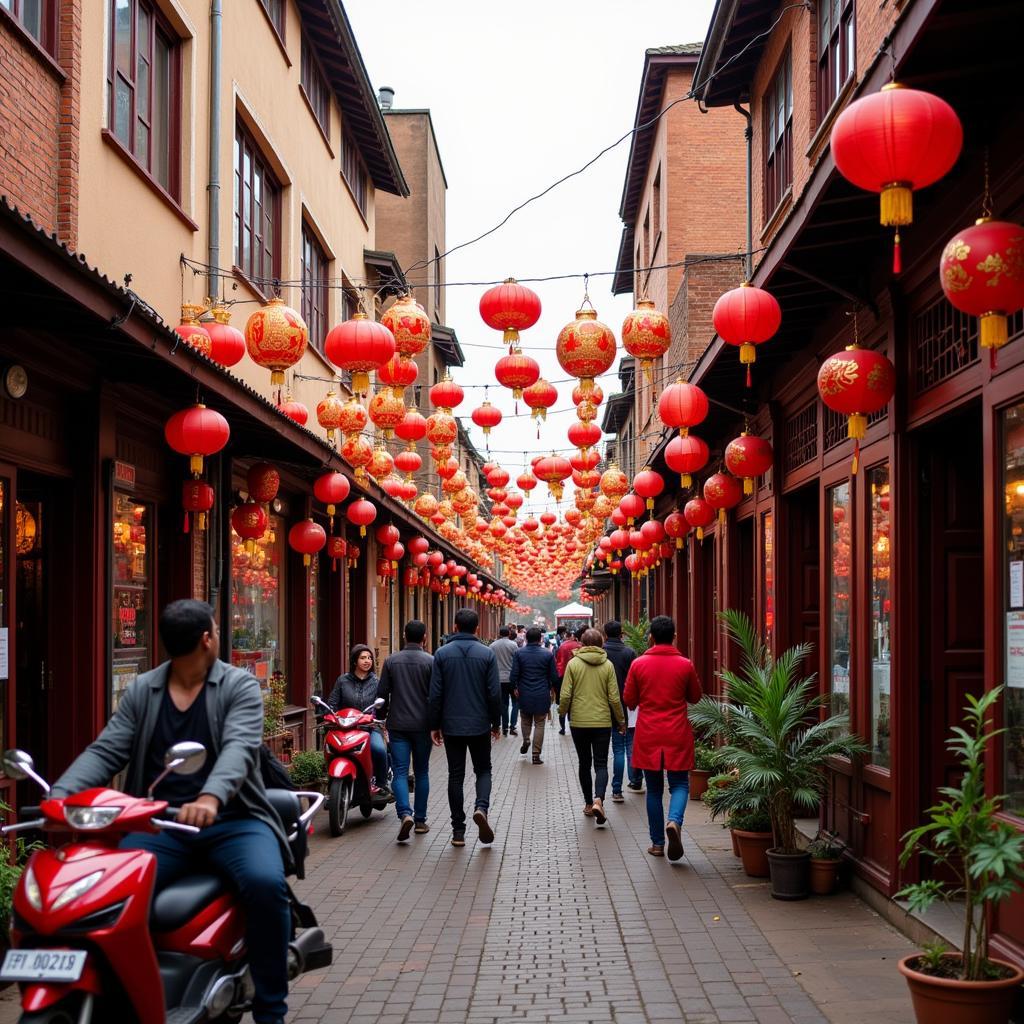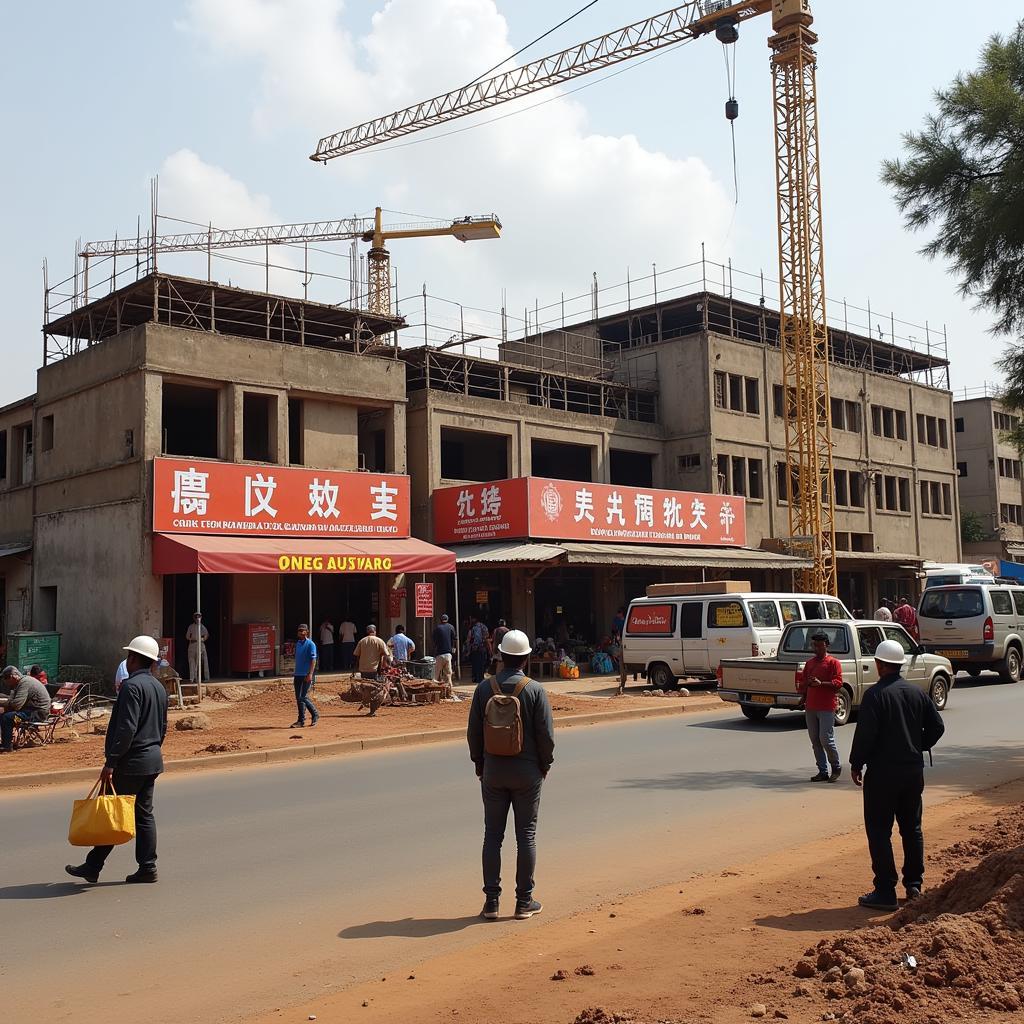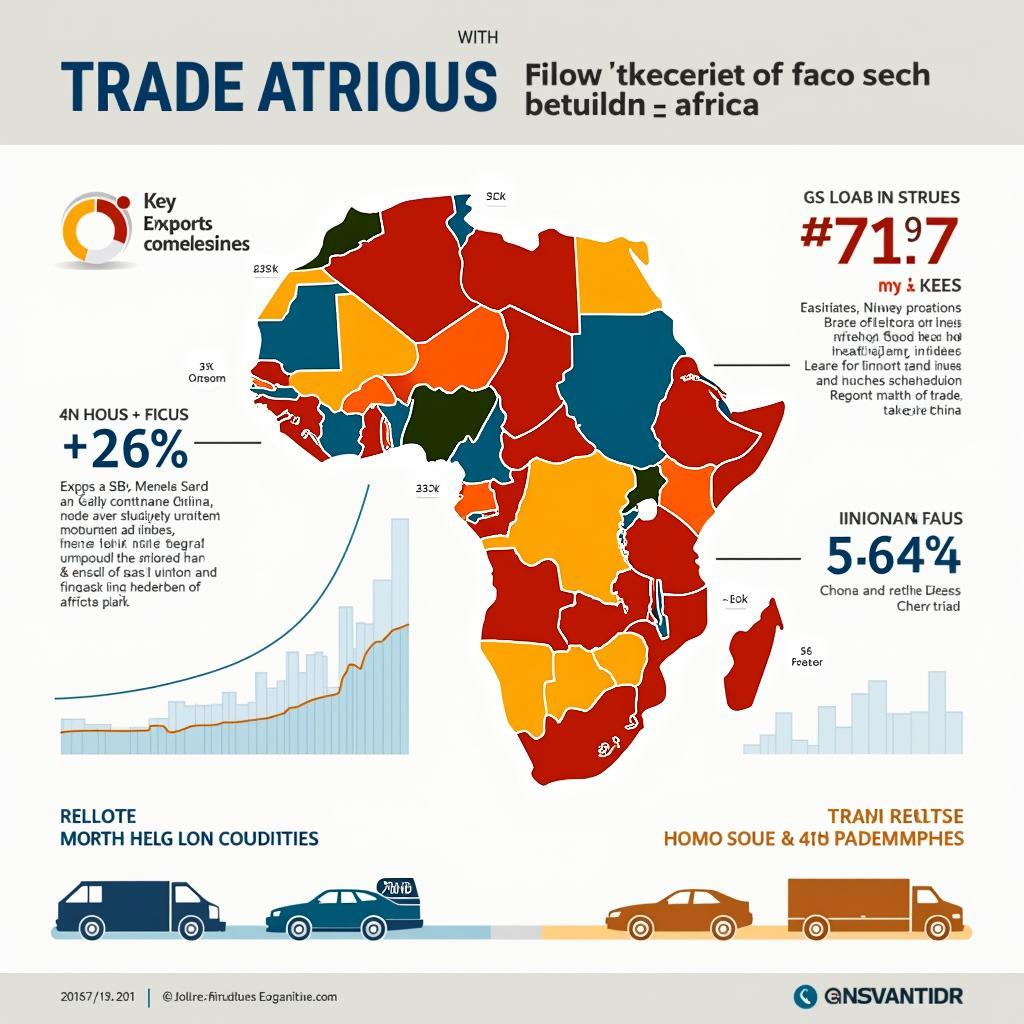African Cities with Chinese Populations: A Growing Cultural Exchange
African cities are experiencing a significant influx of Chinese populations, leading to a fascinating blend of cultures and a reshaping of urban landscapes. This interaction presents both opportunities and challenges for both African communities and Chinese immigrants.
The Rise of Chinese Communities in Key African Cities
Several African cities have witnessed a notable increase in their Chinese populations, driven by factors such as increased trade, investment, and infrastructure projects. This demographic shift is creating unique cultural dynamics in urban centers across the continent.
Nairobi: A Hub of Sino-African Collaboration
Nairobi, Kenya, stands out as a prominent example of this growing trend. The city’s bustling business district is now dotted with Chinese restaurants and shops, reflecting a growing Chinese presence. This influx is largely attributed to China’s significant investment in Kenya’s infrastructure projects, such as the Standard Gauge Railway. The interaction between the two cultures has led to the emergence of new business ventures and cultural exchanges, contributing to Nairobi’s vibrant cosmopolitan atmosphere.
 Chinese community in Nairobi
Chinese community in Nairobi
Addis Ababa: A Growing Center of Chinese Influence
Addis Ababa, the capital of Ethiopia, is another city witnessing a significant rise in its Chinese population. China’s growing economic footprint in Ethiopia, particularly in construction and manufacturing, has attracted a considerable number of Chinese workers and entrepreneurs. This has resulted in the establishment of Chinese businesses and communities within the city, adding another layer to Addis Ababa’s multicultural fabric. This presence is also reflected in the increasing number of Mandarin language schools and cultural centers in the city.
 Chinese businesses in Addis Ababa
Chinese businesses in Addis Ababa
Lagos: A Melting Pot of Cultures, Including Chinese
Lagos, Nigeria, the largest city in Africa, is also experiencing a growing Chinese presence. Driven by trade and investment opportunities in Nigeria’s booming economy, Chinese entrepreneurs and traders have established themselves in various sectors. This has contributed to the city’s already diverse cultural landscape, adding another dimension to its vibrant commercial activities. The presence of Chinese businesses and communities is increasingly visible in different parts of Lagos, further enriching the city’s multicultural identity.
What fuels the growth of Chinese communities in Africa?
The increasing Chinese population in African cities is primarily driven by economic factors, including trade, investment, and infrastructure development. China’s significant investments in African infrastructure projects have created numerous job opportunities, attracting Chinese workers to the continent. Additionally, the growing trade relationship between China and Africa has facilitated the movement of Chinese entrepreneurs and businesspeople seeking new markets.
“The economic engagement between China and Africa is a key driver of the growing Chinese presence in African cities. This engagement has created opportunities for both Chinese and African businesses and individuals,” says Dr. Adebayo Olufemi, a leading expert on Sino-African relations.
 Chinese-African trade relations
Chinese-African trade relations
Cultural Exchange and Integration: A Two-Way Street
The growing Chinese presence in African cities has led to increased cultural exchange. From culinary experiences to language learning, both Chinese and African cultures are influencing each other. While there are challenges in navigating cultural differences, there are also significant opportunities for mutual understanding and enriching experiences.
Challenges and Opportunities
The integration of Chinese communities into African societies presents both challenges and opportunities. Language barriers, cultural differences, and occasional misunderstandings can pose challenges. However, the potential for economic growth, cultural exchange, and mutual learning creates valuable opportunities for both sides.
“Navigating cultural differences is crucial for successful integration. Understanding and respecting local customs and traditions are essential for building strong relationships between Chinese communities and their African hosts,” states Ms. Lin Wei, a Chinese cultural consultant based in Nairobi.
The Future of Chinese Communities in African Cities
The future of Chinese communities in Africa is intertwined with the evolving relationship between China and the continent. As economic ties strengthen and cultural exchanges deepen, these communities are likely to play an increasingly important role in shaping the future of African cities.
In conclusion, African Cities With Chinese Populations are witnessing a dynamic interplay of cultures and economies. While challenges exist, the opportunities for growth, exchange, and mutual understanding are significant. This evolving relationship is shaping the urban landscape and creating a new chapter in the story of Africa and China.
FAQ
-
What are the main reasons for the growth of Chinese communities in African cities? Primarily, economic factors such as trade, investment, and infrastructure projects drive this growth.
-
Which African cities have the largest Chinese populations? Cities like Nairobi, Addis Ababa, and Lagos are experiencing significant growth in their Chinese populations.
-
What are the benefits of this growing interaction? Increased economic opportunities, cultural exchange, and infrastructure development are some key benefits.
-
What are some of the challenges associated with this demographic shift? Language barriers, cultural differences, and the need for effective integration strategies are some of the challenges.
-
What is the future outlook for Chinese communities in Africa? As economic and cultural ties strengthen, these communities are likely to play an increasingly important role in shaping the future of African cities.
-
How is this cultural exchange impacting local communities? The exchange is leading to new business ventures, culinary experiences, and language learning opportunities, among other things.
-
Where can I find more information about this topic? You can explore other articles on our website related to African demographics, cultural exchange, and Sino-African relations.
For further assistance, please contact us at Phone Number: +255768904061, Email: kaka.mag@gmail.com, or visit our office at Mbarali DC Mawindi, Kangaga, Tanzania. Our customer service team is available 24/7.

